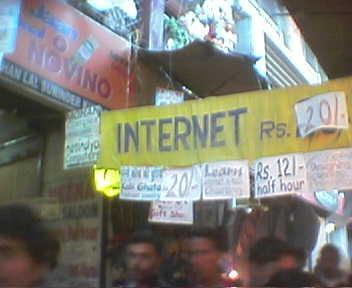OCTOBER 15, 2004
NEWS ANALYSIS By Josey Puliyenthuruthel
Redmond's Cut-Rate Passage to India
A confident Microsoft sees smooth sailing for a bare-bones, Hindi version of Windows. Analysts can spot pirates on the horizonMicrosoft's recent announcement that it will introduce early next year in India a low-priced Windows XP Starter Edition in Hindi, the dominant local language, has created quite a buzz in the subcontinent's personal computing market. Not that Microsoft (MSFT ) is new to India: The software giant has been in the Indian market since 1990, with the best estimates being that Redmond will sell around $165 million worth software this year. The latest move, announced Sept. 29, has some urgency to it, however. Over the last three years, the open-source movement -- supported by IBM (IBM ), Red Hat (RHAT ), SuSE, and dozens of local Linux specialists -- has been rolling out desktop and server products, winning private and state clients. LIMITED APPEAL? Judging from the initial responses to the testing of the Hindi software ( the product is being sampled by 250 Indian users), Microsoft has some wrinkles to iron out. For example, the XP operating software uses only Hindi in a country where even local software is dual-language -- Hindi and English. What's more, the operating system runs only a limited menu of applications, does not offer Microsoft Works, and has no upgrade options. Analysts worry that first-time users will quickly outgrow the software and become frustrated by its limitations. Says V. Chandrasekhar, chief technology officer of state-owned Bank of Baroda in Bombay: "It seems highly restrictive -- especially the single language." Microsoft's strategy is clear. India has very low PC penetration -- just 1.2% of the total population. Only 3 out of every 10 PCs are sold with legally loaded software, so an inexpensive operating system is a consumer inducement, the thinking goes. PUBLIC-SECTOR SALES. The Windows XP Starter Edition is certainly cheap, as well as easy to use. To keep costs down, Microsoft has removed higher-end features like the ability to network multiple computers. But it does come with new help features and a video that explains the most basic essentials, right down to what a mouse does and how to use one. "The help utility with a video is very intuitive, especially useful for consumers who are not very tech savvy," says S. Sadagopan, one of the trial users and a director of Bangalore's Indian Institute of Information Technology. Microsoft got the idea for a discounted Windows XP Starter Edition from its experience last year in Thailand, where it offered a local-language version bundled with the MS Office suite at a steep, one-time-only discount that helped it win a 1 million-unit government contract. In India, industry insiders say Microsoft's focus is on gaining a larger share of the growing government market -- 18% of the 3 million PCs sold annually. While English dominates the federal bureaucracy, Hindi is also used. At the state level, government business is conducted and chronicled in the local tongue, meaning that a jurisdiction like Uttar Pradesh, where Hindi is the norm, represents an immense potential market. Eventually, Redmond hopes the new software will trickle down to the first-timers' market. The company won't disclose pricing of its Hindi version, but analysts reckon it will sell for no more than $35, about 60% less than the fully loaded Home Edition currently sold in India. "The whole idea is to help create an all-inclusive digital society," says Ravi Venkatesan, chairman and general manager of Microsoft India. "By 2010, we want to enable information access to every Indian." PIRACY'S SHADOW. That looks like a tall order, given that pirated copies of Windows XP in English are available on Indian streets for between $5 to $10. Moreover, stripping important features from the world's dominant operating software is not likely to be received well by value-conscious Indians. Once the Starter Edition is introduced in Hindi, that version, too, will likely be pirated and available at the same low prices. Microsoft is sufficiently confident in its bare-bones strategy that it is releasing similar local-language versions in Indonesia and Malaysia later this month. Certainly, the product can be refined, and Microsoft says it will consider the feedback from trial users when mulling possible improvements -- perhaps additions like dual-language capability, the ability to support at least five simultaneous applications, an evaluation version of Works, and an anti-virus package. As for distribution, Microsoft hopes to reach India's Hindi-speaking masses though tie-ups with PC vendors like Hewlett-Packard (HPQ ) and local Indian PC-maker HCL Infosystems. It's a plan, but some analysts wonder about the overall strategy. "In the long term, Microsoft cannot rely on limiting functionality in Windows to reduce prices," says Dion Wiggins, vice-president at tech researcher Gartner in Hong Kong. "In markets like Thailand and India, where piracy is rampant, users will go back to pirated copies of Windows XP Home or Pro editions if they aren't happy." To win first-time customers in burgeoning markets like India, Southeast Asia, and China, Redmond must find a way to persuade users that it is worth plunking down the money for the real thing.
Puliyenthuruthel is a stringer for BusinessWeek, based in Bangladore.
Copyright 2000-2004, by The McGraw-Hill Companies Inc.
Saturday, December 03, 2005
Subscribe to:
Post Comments (Atom)

No comments:
Post a Comment